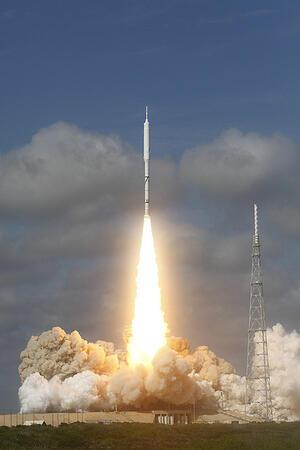First is the...worst?
Sally Ride died on Tuesday at the age of 61. First American woman to go into outer space. The first. The very first. American. Woman. Astronaut.
What does it mean to be the first? What is our Western love affair with the number one? How does the idea of being “the first” bolster or undermine feminism?
I find myself in a Catch-22. Women, though 51% of the population, are still a minority, along with the ethnic, religious, and political groups that actually comprise a minority of the population. Women are considered a minority because we still struggle for the same opportunities as the white, male majority. And so when “a first” comes along, it’s an opportunity to celebrate—we are making headway, doors are opening for us, the scales of power and opportunity are slowly coming into balance.
But it is also a time to mourn. And a time, an opportunity, to reflect.
The concept itself—“being the first”—stems from the patriarchy. (Yes, I said it—PATRIARCHY; try to really hear what I’m saying though). Numbering people and things, placing individuals and experiences into a hierarchy is a “masculine” and very much a "Western," concept.
What about number two? What about the team that made it possible for number one to be number one?
That line of thinking, that collaborative, holistic, gestalt spirit just doesn’t have the same pizzazz. I get it. In our over-stimulated, over-sensitized culture where we need to deliver meaning, hooks, and sound bytes in a tightly packaged medium, it’s hard to distance oneself from using “the first” angle to distill a story and garner attention.
But I think we must. I think if we don’t, it’s just one more symptom of tokenism. I do not have any suggestions on how to do this though, only some observations.
While listening to two NPR reports on Sally Ride, the July 24th Morning Edition and the July 25th Tell Me More, I was intrigued by how the guests were introduced. For the Morning Edition piece, Kathryn Sullivan was introduced as “senior official at the National Oceanic and Atmospheric Administration. She and Ride flew together in 1984 when Sullivan became the first American woman to walk in space.”
On Tell Me More, two of the guests were introduced as follows: “…We're joined now by Ellen Ochoa. She's currently the deputy director of the Johnson Space Center and she's also a trailblazer in her own right. She was the first Latina in space. Also Colonel Pamela Melroy. She piloted two shuttle missions and served as the commander on the 2007 Discovery shuttle flight, making her another trailblazer, only the second woman to command a shuttle.” I like hearing about trailblazing women whose stories are larger than being "the first"...or the second... or the third. I want to hear about the meat, the action, the impact of their efforts.
I was speaking to one of my supervisors the other day, and she mentioned that in the early years of the Jewish Women’s Archive, the organization focused many of its stories on women trailblazers being “the first” in a given arena. Now, 15 years later, as I searched jwa.org, I'm pleased to see our stories have broadened—we no longer need to use “the first” as a way in, or as a crutch for more substantial, fuller, and multi-dimensional stories. I think that's great.
It's not so cut and dry though, because I know that when I write my next blog post about a woman who is the first to (fill in the blank), I’m going to get some serious flack from readers. But I welcome it! Because I don’t really see this as a clear line in the sand, rather something to grapple with.
And speaking of grapple, stay tuned to next week’s post about Rusty Kanokogi, Jewish judo master, who fought for many years to have women's judo made an Olympic sport…and saw this realized when she was coach of the first U.S. women's team in Seoul, South Korea in 1988.







